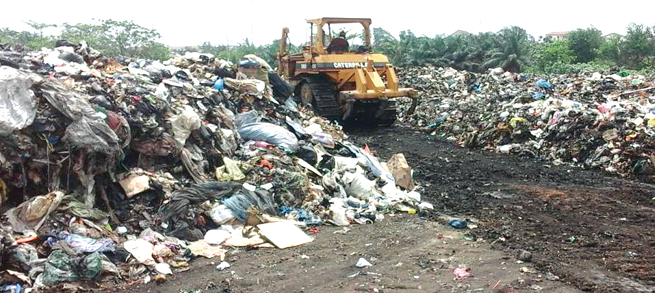
Managers of the Greater Accra Metropolitan Assembly Sanitation and Water Project have started processes to develop further proposed technological solutions to sanitation problems in the country.
This follows the successful selection of three out of thirty IT ideas by a team of judges inclined with sanitation and technology knowledge. The program dubbed Hackathon saw inspiring teams from all over Ghana come together to design and pitch IT-inspired solutions in line with the vision of government to resort to feasible ways of addressing the country’s sanitation problems.
A consultant for the World Bank, Harold Esseku, said “we are looking at supporting not just the winners, but others who have something promising to offer. The idea is to look at disruptive technologies to bring about solutions for various things which happen in this country, especially with the sanitation sector as part of the World Bank end Poverty day”.
He added, “now that we have these winners, we are looking at helping them to use what they have developed to help improve the sanitation situation in the country”.
Project Engineer with GAMA Sanitation and Water Project, Gabriel Egman said: “it was tiring working them to bring out the best but we eventually settled on three out of the thirty because five teams dropped out before the finale”.
Mr Egman who served as one of the judges revealed “the first team developed an app with an integrated solution to reduce plastic waste generation and pollution, so they have a plan to engage the users to keep their used plastics so it gets picked at the next supply. And it is a marketing plan which is properly mapped so we see it as very viable.”
Ghana’s access to sanitation currently stands at 15%, prompting an action plan by government and other stakeholders including the Greater Accra Metropolitan Assembly Sanitation and Water Project (GAMA) with support from the World Bank to ensure that access to water for all and improved sanitation is achieved by 2030.
The country generates an estimated sixteen thousand tonnes of solid waste daily but lacks proper management plan. Minister for Sanitation and Water Resources, Cecilia Dapaah noted that “technology is playing a significant role in addressing some of the developmental challenges in the country thus its high penetration rate and usage also affords the platform for long-term success and sustainability of solutions.”
“Integrating IT in sanitation is, therefore, a step in the right direction” the minister added.
Meeting Minister
The winners NsuApp, Beemers and Sani-GH paid a courtesy call on the Minister for Sanitation who was out on official assignment in Morocco during the finale to brief her on their proposals and work plan as the GAMA Sanitation and Water Project team liaise with the ministry to start work on the development of the selected pitch.
Landfill sites
Meanwhile, government says it will award the contract for clearing and reformation of landfill sites in Accra in the first quarter of next year. According to the Minister for Sanitation, work is currently ongoing to help develop a more feasible way to deal with the mountains of waste at dump sites.
Cecilia Abena Dapaah said, “feasibility has been done, designers have come in and the World Bank is providing the funding so a lot of action has gone on and I think after the first quarter of 2019, the sites will be given to a contractor hopefully to start work”.
GAMA Sanitation and Water Project
Already the GAMA Sanitation and Water Project has constructed over 13,500 household toilets as part of measures to end open defecation. Also an estimated 406 institutional toilets in 246 schools across Greater Accra. The project is expected to construct an additional 7000 toilets by the middle of 2019.
Source: Ghana/Starrfmonline.com/103.5FM/Papisdaf Abdallah

